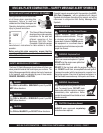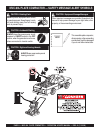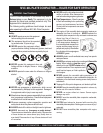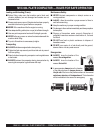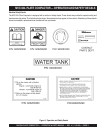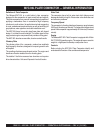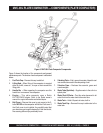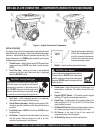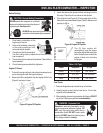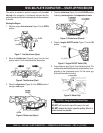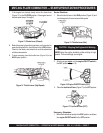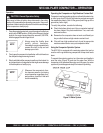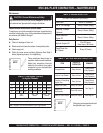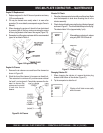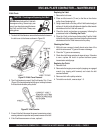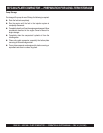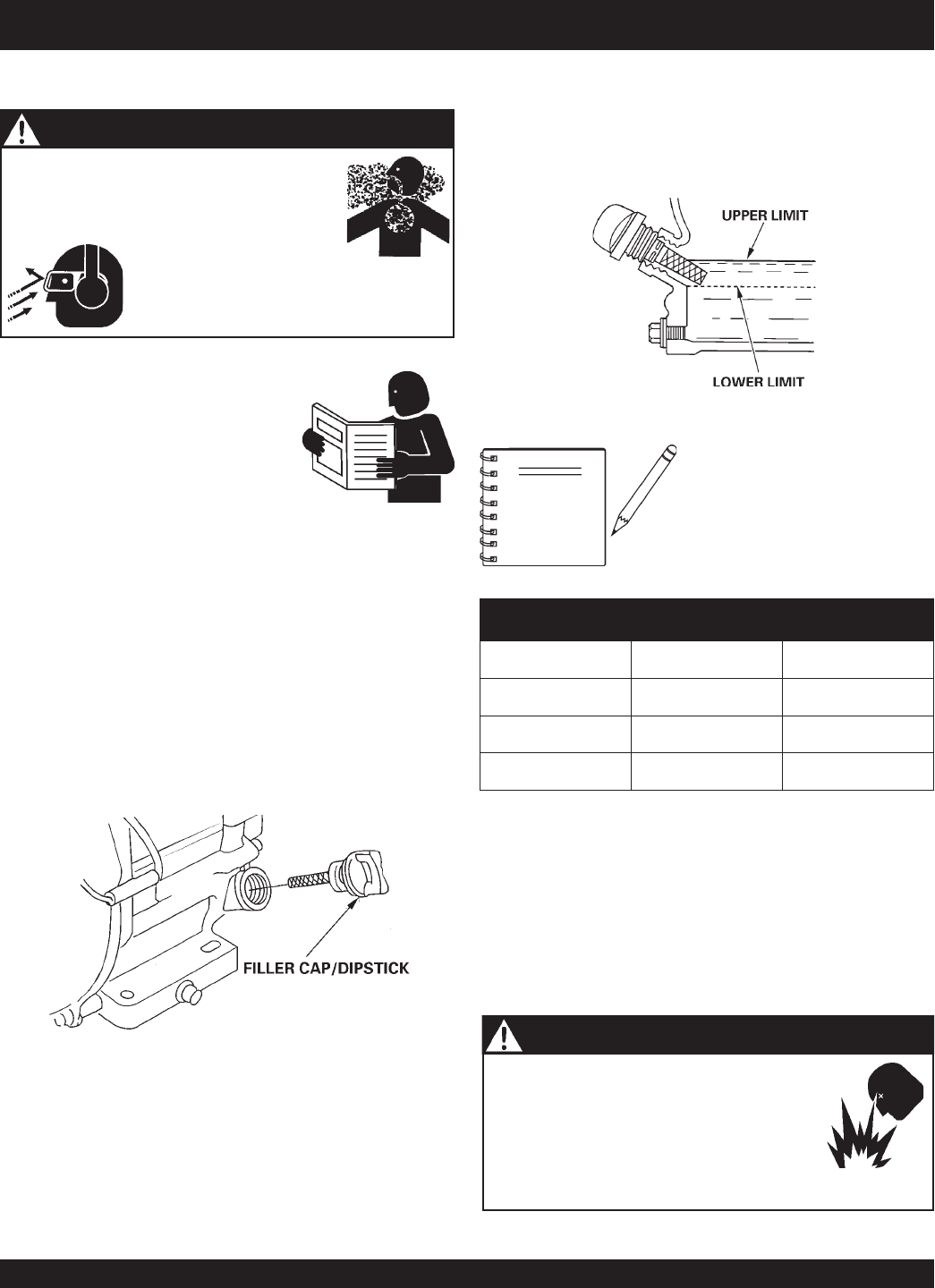
MVC-90L PLATE COMPACTOR — OPERATION & PARTS MANUAL — REV. #1 (11/01/05) — PAGE 15
MVC-90L PLATE COMPACTOR — INSPECTION
3. Insert and remove the dipstick without screwing it into the
filler neck. Check the oil level shown on the dipstick.
4. If the oil level is low (Figure 6), fill to the edge of the oil filler
hole with the recommended oil type (Table 4). Maximum oil
capacity is 400 cc.
Figure 6. Engine Oil Dipstick
epyTliO.4elbaT
nosaeS erutarepmeT epyTliO
remmuS rehgiHroC°52 03-W01EAS
llaF/gnirpS C°01~C°52 02/03-W01EAS
retniW rewoLroC°0 01-W01EAS
The Oil Alert system will
automatically stop the engine
before the engine falls below safe
limits. Always be sure to check the
engine oil level prior to starting
the engine.
CAUTION - General Safety Precautions
ALWAYS wear approved eye and hearing
protection before operating the compactor.
NEVER operate the compactor in a confined
area or enclosed area structure that does not
provide ample
free flow of air
.
Engine Oil Check
1. To check the engine oil level, place the plate compactor on
secure level ground with the engine stopped.
2. Remove the filler cap/dipstick from the engine oil filler hole
(Figure 5) and wipe it clean.
Before Starting:
Fuel Check:
1. Remove the gasoline cap located on top of fuel tank.
2. Visually inspect to see if the fuel level is low. If fuel is low,
replenish with unleaded fuel.
3. When refueling, be sure to use a strainer for filtration. DO NOT
top-off fuel. Wipe up any spilled fuel
immediately!
Explosive Fuel
Gasoline is extremely flammable, and its
vapors can cause an explosion if ignited. DO
NOT start the engine near spilled fuel or
combustible fluids. DO NOT smoke while
refueling. DO NOT attempt to refuel the pump
if the engine is
hot!
or
running
.
WARNING - Explosive Fuel
Figure 5. Engine Oil Dipstick
1. Read safety instructions at the
beginning of manual.
2. Remove dirt and dust, particularly
in the engine cooling air inlet,
carburetor and air cleaner.
3. Check the air filter for dirt and dust.
If air filter is dirty, clean or replace the air filter with a new
one as required.
4. Check carburetor for external dirt and dust. Clean with dry
compressed air.
5. Check fastening nuts and bolts for tightness.
NOTE



